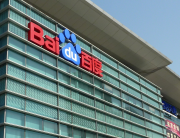Matt Cutts has said a lot in the public this week about quality of links and dispelling myths that seem to have sprung up in the wake of the Penguin updates. He confirmed last week that “links still rule” as a ranking indicator, so for those that preach that linking is dead then they are barking up the wrong tree.
To explore further what Matt said in the interview he said that links are good, but focus on the quality of content first before getting the link. I think there is merit in both approaches to be honest; what happens at the moment is that you want more links to your content to encourage traffic and increase authority to your site, then you will focus on improving the content to maximise output from visitors. I agree that’s a good way to do it, but Matt it is also right in what he says. If links are being placed “naturally” to a piece of content on your website then surely the content is good enough to have earned that link. Therefore, he is saying focus on the content first, and if it is good enough the link building should do itself.
Press Release links probably don’t count as much as they used to but because of fears with the Panda updates and with duplicate content people tend to stay away. The fact is press releases do add value and in the same way that an offline press release can generate volume of enquiries the same can happen online.
The purpose of a good press release is to syndicate your news story, to maximise it’s reach across the internet to multiple readers and editors. Our recent release about our company launch was picked up by an editor at The Independent who called me, but even though it didn’t lead to a feature in The Independent we were in the hunt for one. This exposure is what creates natural linking through syndication and this is a good way of showing that quality content has good value to other people and is still a useful ranking indicator.
As with all “syndicated” content, however, it is important that you use authorship and publish the content on your own website first. Unknown authors are becoming a big problem on the internet, and with Google looking for content being marked up with an author I believe this just indicates that they too need to start seeing where “original” content is being created, and in turn crediting the original source in the rankings.
The other way of doing it is not to syndicate a piece of content and instead of putting it on your website you publish on an external website as a “guest post”. What Matt warns here is that people are getting this technique wrong and the places where the post is being placed is on low quality website and regurgitating content that is already out on the internet. This technique, in my view, is becoming “guest blogging” which is no different to the old state of affairs we were in in 2011 with poor quality article directories. We are just seeing the same article directory practices of 2011 being disguised as guest blogging with a little less syndication. What you need to do is submit a high quality piece of content with really good value to the reader to a really authoritative website.
Link Wheels
Matt Cutts yesterday, although didn’t refer to the topic as link wheels, discussed the concept of having multiple domains of similar content all linking to each other. This is becoming a common practice and I have seen companies selling this practice as part of SEO off-page strategies. This is one of the things that Google is looking to target – websites that are deliberately linking to each other to sell linking space back to a target website, purely to deceive Google and appear higher up. I spoke to a contact doing this a few days ago and he said that he builds the websites and sells the links knowing that it is a matter of months before the sites get penalised and deindexed. He then repeats the process and sells more links. For me and Blue Ocean Search, that is just unethical and to run the risk of penalty on clients’ website is not something that we do. There are SEO Agency out there that are actively selling this practice so I suggest to anyone who is unsure what they are buying is to get multiple opinions from varying SEO Professionals and SEO Companies.
Other people question the value of directories as they have done here over the last few days. Good directories exist, you just need to find them. There are a good few hundred of these directories online that have good domain authority and have relevant categories for placement. What people have not seen is the thousands of directories, literally thousands, that were used for link placement that have now been de-indexed from Google following the Penguin update.
SEO practitioners and online marketers need to remember that link building is Google’s way of judging citation. It is about engaging with community online which is a natural approach, and it is very easy to get sucked into the unnatural way through link buying. Build a linking profile in the natural way.
A few take away tips about what not to do with your linking practices:
Do not buy links
Do not participate in link wheels
Do not knowingly deceive Google in your linking practices.
At Blue Ocean Search we only engage in natural link building and do not “buy” any links. We place links on natural websites and focus on quality content to achieve rankings. For more about our SEO services please take a look at our SEO Services page.









